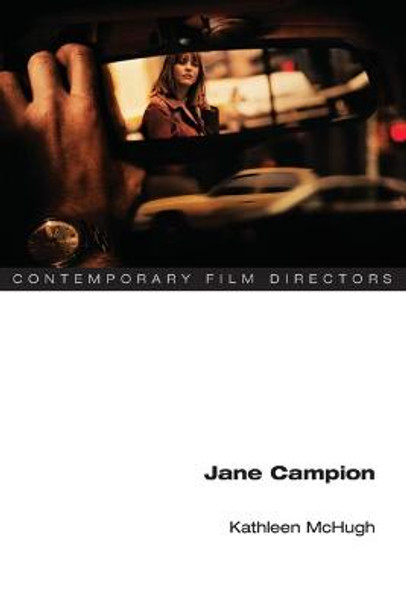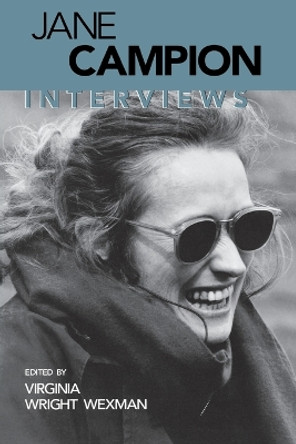Description
In considering Jane Campion's early award-winning short films on through international sensation The Piano and beyond, Kathleen McHugh traces the director's distinctive visual style as well as her commitment to consistently renovating the conventions of "women's films." By refusing to position her female protagonists as victims, McHugh argues, Campion scrupulously avoids the moral structures of melodrama, and though she often works with the narratives, mise-en-scene, and visual tropes typical of that genre, her films instead invite a distanced or even amused engagement.
Jane Campion concludes with four brief, revelatory interviews and a filmography. Campion spoke twice with Michel Ciment-after the screening of her short and medium-length films at the Cannes Film Festival 1986, and three years later, after the Cannes screening of Sweetie. Judith Lewis narrates a Beverly Hills interview with Campion that followed the release of Holy Smoke, and Lizzie Francke's interview, reprinted from Sight and Sound,centers on Campion's film In the Cut, adapted from Susanna Moore's novel.
A volume in the series Contemporary Film Directors, edited by James R. Naremore
The subversive style of the woman who has become one of the world's greatest directors
About the Author
Kathleen McHugh is a professor of English and film, television, and digital media at UCLA. She is the author of American Domesticity: From How-To Manual to Hollywood Melodrama.
Reviews
"This is an original, witty, and highly nuanced reading of Campion's films that takes into account a wide range of aesthetic and cultural influences on the filmmaker and her work. Wonderfully responsive to the films and informed by a non-dogmatic feminist sensibility, the book builds in power as it progresses. In sum: superb writing, superior scholarship, and stimulating-indeed, exciting-to read."--Vivian Sobchack, author of The Address of the Eye: A Phenomenology of Film Experience
"Astute and well-structured study of Campion's films."--Library Journal
"McHugh supplies close . . . critical readings of Campion's films, offering thorough analyses of Campion's visual approach and recurrent subject matter-female self-expression, familial and sexual relationships, and gender roles, all of which evince the filmmaker's 'complicated relationship with feminism.'"--Booklist
"Kathleen McHugh is a . . . clear and conscientious writer who takes care to make her research visible and to spell out any possibly unfamiliar ideas. She has the academic knack for seizing upon parallels, oppositions, and ironies and working through their permutations. . . . McHugh proves to be a good practical critic. She gives a detailed and convincing account of the dream-like logic of Campion's narratives."--Australian Book Review
"A great strength of McHugh's book is the illuminating and evocative descriptions of the films themselves. The effect on the reader is twofold: it makes one want to watch the films again, and it provides insights into the way in which films are constructed in terms of craft. McHugh demonstrates a strong background that bridges both theory and production."--Senses of Cinema
Book Information
ISBN 9780252074479
Author Kathleen McHugh
Format Paperback
Page Count 208
Imprint University of Illinois Press
Publisher University of Illinois Press
Series Contemporary Film Directors
Dimensions(mm) 210mm * 140mm * 13mm
Details
Series: |
Contemporary Film Directors |
Imprint: |
University of Illinois Press |







![Jane Campion Kathleen McHugh 9780252032042 [USED COPY] Jane Campion Kathleen McHugh 9780252032042 [USED COPY]](https://cdn11.bigcommerce.com/s-ngzg0zcz0u/images/stencil/444x444/products/604019/675787/9780252032042__36297.1722617425.jpg?c=1)






